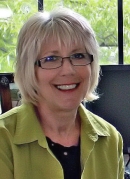So...my husband helped me pack up and we got ready to drive home. So much for my exciting first book signing. Not to mention it was a drizzly, dismal day and looked like it was going to rain. The weather was appropriate for my mood right then. To top it off, the heavy humidity brought some kind of allergen with it and my asthma flared up for the first time in months. I had used my inhaler, since I was planning to do the book signing outdoors, so by that time I was really shaky, which I do not like.
So there I was, disappointed, shaking and trying to find the library because it was my last chance at having any kind of book signing that day. Found it, and they happened to be having an outdoor book sale that day. Providence! I asked some nice lady who asked some other guy if I could set up my little table near their setup and they agreed. Things were looking better, until I drove around to the parking spot they'd saved for me and there was this tiny elderly lady sitting in a folding chair in the parking space. I waved at her to show her that I was the one she was saving it for and she scrambled out of the way, not smiling. I got out and started setting up when the same lady asked me, "Who are you?" in a tone that implies, "What in the world are you doing here, young lady?!"
Oh dear. Come to find out, she was the person in charge, no one had told her about me, and seems she thought I was trying to run her over--or something unhappy like that. Well, that wasn't a good way to start the day. I remembered that verse in Proverbs about how a gift in the hand pacifies the king, so I brought a copy of my book over to where she was whispering about me to a friend, and I apologized for not asking her first (not like I knew I should, but oh well) and I wanted her to have a copy of my book. Well, she said it wasn't necessary, but I said I wanted to, and finally she relented to accepting it for the library.
I set things up, then spent a few hours moving books farther under the canopy when it started sprinkling, chatting with people about my book and life overseas and such, and selling 12 copies. Definitely less than I'd hoped for, but considering the weather, the broken rules and the unhappy lady, I was very thankful I'd sold any at all! I got to meet some wonderful people, and 3 of the people I talked to had heard or seen something about my book before. That was cool!
 |
| This was at a different outdoor book signing--the day of my first one, I was too busy trying to avoid disaster to take a photo! |
In the end, I made some friends, sold some books, and the elderly lady turned out to be a very nice person who wished me luck and even gave me some free books for my kids. (And I learned a lesson or two about finding just the right person to ask--which I will hopefully do ahead of time next time.)
Second book signing, here I come. I'm excited about the possibilities, and I will try very, very hard not to offend whoever knows the rules or is in charge, or anybody else if I can help it!
Tune in next week to hear about my book signing at Chick-Fil-A that was even more of a fiasco!









